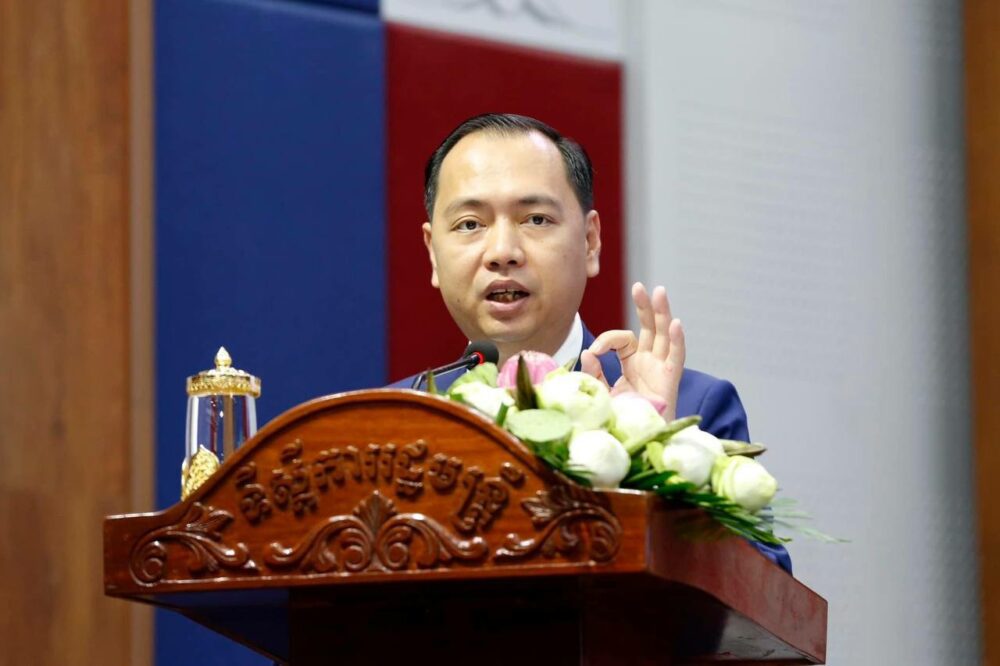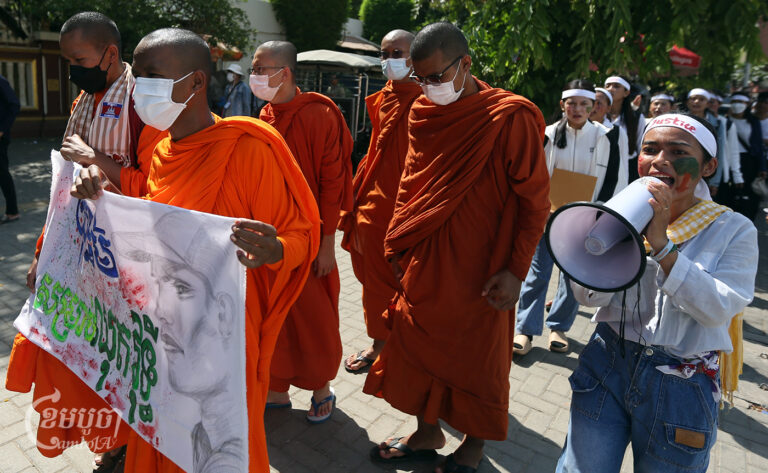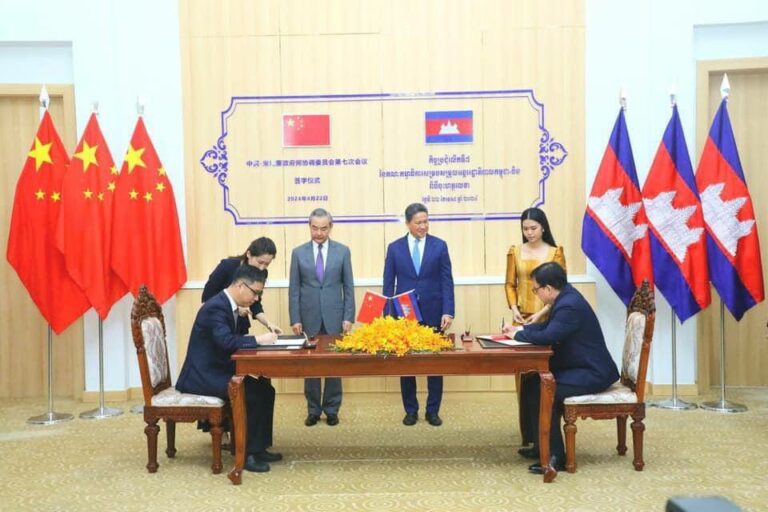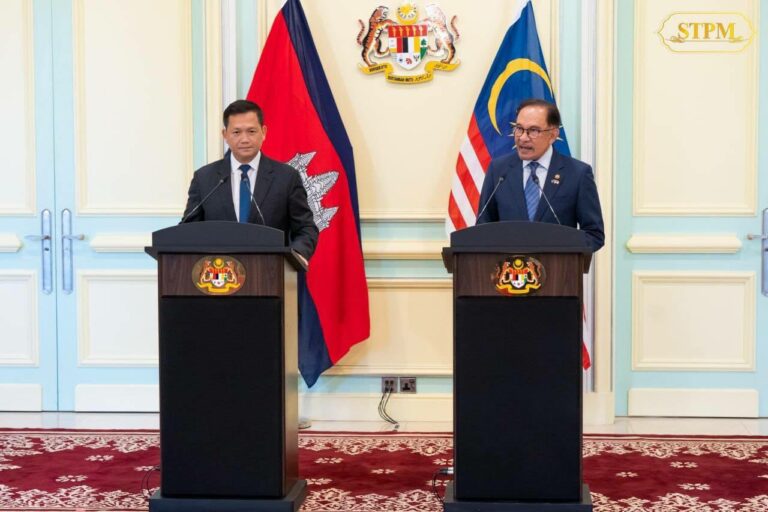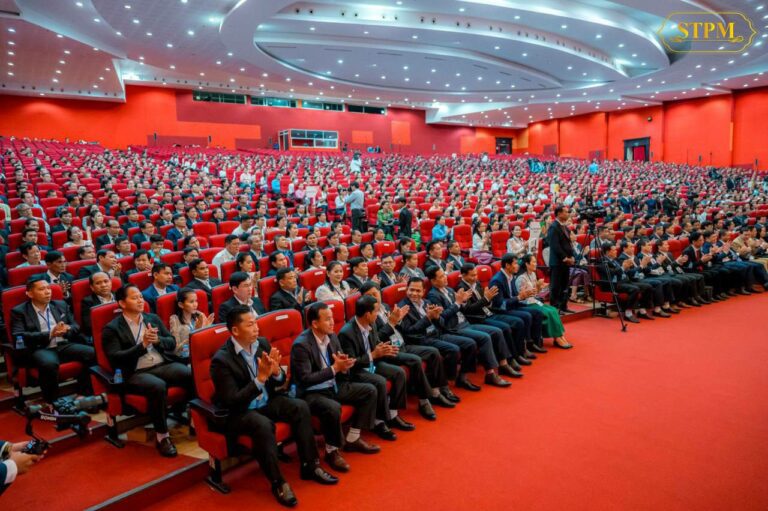The Ministry of Information is finalizing the long-overdue draft law on the access to information, known as the “A2I draft law”, as highlighted in its work direction for 2024. The draft law is currently being reviewed by the Ministry of Justice, according to documents viewed by CamboJA.
Last year, former Prime Minister Hun Sen promised that the A2I draft law would be passed after the election, or the latest by 2025.
Information regarding the ministry’s commitment was revealed on the last page of its summary annual report 2023, which was obtained by the CamboJA reporter. Among its seven-point work directions was the part on “finishing the access to information draft law that is under review by the Ministry of Justice”.
Over the last five months, Information Minister Neth Pheaktra said his ministry has been working on a few tasks, including the preparation of documents in line with the evolution of society and digital context, and the development of ethical journalism standards.
Five indicators have been identified in preparation of the digital economy and the adoption of Industrial Revolution 4.0, Pheaktra mentioned at the closing of a two-day annual meeting.
The indicators include building the legal basis and strengthening law enforcement, which focuses on the preparation of the draft law, the amendment of press law to adapt to social development and strengthening the implementation of professional ethics in Cambodia.
Pheaktra said reform and strengthening of good governance will be promoted with a focus on quality assurance and efficiency to transform his ministry into a government public relations institution.
“The ministry lacks laws and regulations to strengthen journalism and audiovisual. Thus, [we] have set a goal for 2024 [for] the management of the order for information, which includes the preparation of legal measures and technical standards,” he said.
He added that the ministry has been preparing a code of conduct for journalism, an ethical code of information to strengthen institutional efficiency.
Information Ministry spokesperson Tep Asnarith said a work direction for 2024 has been set with several main priorities, including the preparation of laws and regulation. It is among the ministry’s main mission, which is to establish information systems and mechanisms to manage information, space, information security, and to fight against false information.
“The ministry has reviewed the draft laws and regulations in accordance with the social context, including the press law that is in line with the development and needs of society,” he said.
The reviews also involve amendments to a sub-decree on the Organization and Functioning of the Ministry of Information, and the preparation of a “press charter”, seen as a standard or a national professional code of conduct for all parties.
Asnarith said the establishment of a press charter is a priority for the ministry in its bid to promote professional journalism values and build a strong foundation to gain the trust of the people.
The ministry also envisioned itself as the government’s public relations institution with a proactive, interactive, effective and quality approach. It aims to provide “new, true, fast, comprehensive, reliable, and professional (information) to connect all circles”.
CamboJA Executive Director Nop Vy opined that initiating a common code of ethics is good, however, the ministry should instead allow media associations to develop a common code of ethics without the government’s influence.
This was because a common code of ethics developed by the media industry could be used as a self-regulation framework.
“Journalists should have their own code of conduct and [methods to] implement it [to] measure their level of performance as journalists and [to] raise confidence. This code is very important,” Vy said. “But we don’t want to see the government making laws to regulate journalists.”
He explained that even if journalists made the code, they would abide by it as they will be bound by it.
Meanwhile, Prime Minister Hun Manet, who was at the event with Pheaktra, remarked the importance of having laws and technical standards to promote good journalism and audiovisual.
The Information Ministry and relevant ministries have developed a national code of conduct for journalism, which would be the press charter for media institutions and journalists, Manet noted.
“The preparation of law and technical standards [is] to regulate and promote the quality of broadcasting and journalism, as well as review the press law to respond to the development of society,” he said.
He asserted that the new laws would not restrict the freedom of expression, although there are “some people” who always accuse the government of closing the space for democracy and rights, especially in relation to information.
“I have said the law would not block the rights of journalists but would protect them,” Manet said. “Protect journalists, who act in accordance with the law, and protect their values. We have laws that allow freedom of space which tells us what rights we all have.”
He also stressed that the government is paying “close attention” to press freedom and expression of opinions and has asked both the Information and Interior ministries to monitor fake news and take action against them.
Justice Ministry spokesperson Chin Malin did not respond.
Lam Socheat, director of the Advocacy and Policy Institute (API), who together with other civil society organizations have long called for the approval of the A21 draft law told CamboJA that the review by the Justice Ministry is “great news”, given that the new law would be highly beneficial to the people.
“Congratulations,” said an impressed Socheat. “We’ve been working hard for years with the Information Ministry’s technical team and civil society organizations, which have wanted to see this law approved in 2024.”
However, he felt that the approval of the law would be better if it included the input of civil society organizations.
The organizations have called for the removal of Article 20.7 from the A2I draft law, which states that public institutions may withhold “other confidential information as stipulated in the prohibition provisions”.
They also asked that Article 15.4 be taken out, as it talks about the deletion of an article and the requirement for 40 days to pass before a repeat request can be made to include newly released information.
“We request the deletion of some articles that limit citizens’ right to information and include government institutions at every level, such as legislative, parliamentary and judicial institutions, not just executive institutions.”
“So, please include civil society’s input in order to meet international standards. But, we applaud the review of the law and its approval as soon as 2024.”


